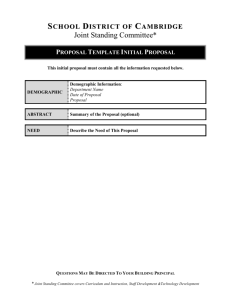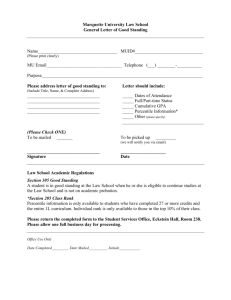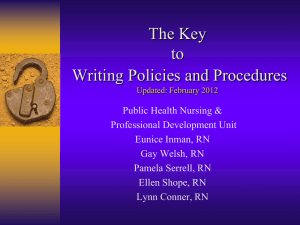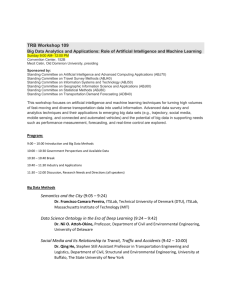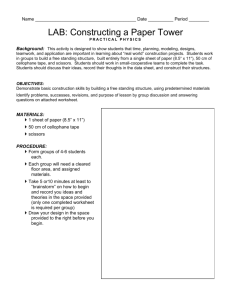Standing
advertisement
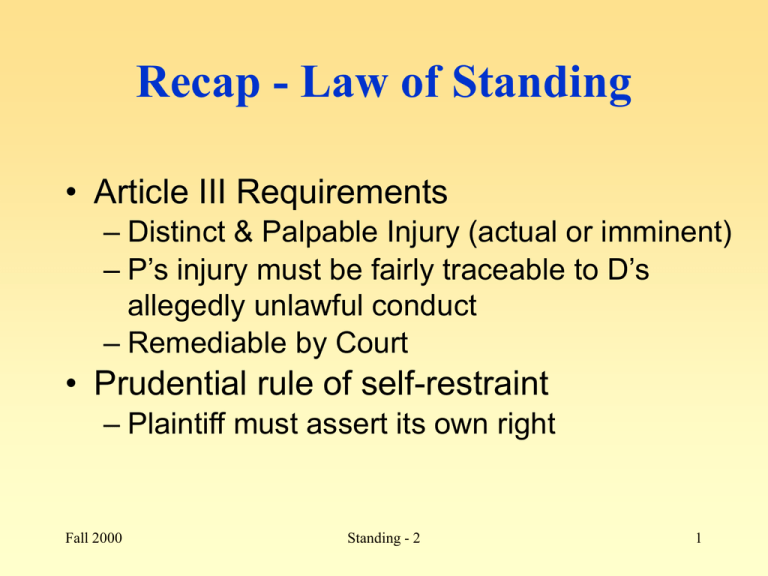
Recap - Law of Standing • Article III Requirements – Distinct & Palpable Injury (actual or imminent) – P’s injury must be fairly traceable to D’s allegedly unlawful conduct – Remediable by Court • Prudential rule of self-restraint – Plaintiff must assert its own right Fall 2000 Standing - 2 1 Examples - 1 • Distinct & Palpable Injury – Satisfied: all plaintiffs in Warth – Not met: Lujan [claim of injury to aesthetic & research interests was not sufficiently specific] – Not met: Lyons v. Los Angeles • plaintiff subjected to illegal police choke hold had standing to seek damages, but could not show actual or imminent injury from future choke holds. Held: no standing to seek injunction Fall 2000 Standing - 2 2 Examples - 2 • Causation: – Satisfied: Regents v. Bakke [white applicant was injured by UC’s affirmative action plan even though he couldn’t show he would have been admitted; his injury was his inability to compete equally, not his rejection] – Not met: Ps in Warth Fall 2000 Standing - 2 3 Examples - 3 • Redressability – Satisfied: Duke Power v. Carolina Study Grp [nuclear power plants likely to shut down if Price-Anderson Act (limiting nuclear liability) was declared unconstitutional] – Not met: Lujan [withdrawal of federal funds would not necessarily cause cancellation of project] – Not met: Allen v. Wright [black parents lacked standing to challenge IRS policy granting tax-exempt status to discriminatory private schools; loss of taxexemption would not necessarily reverse white flight from public schools] Fall 2000 Standing - 2 4 Examples - 4 • Plaintiff must assert its own right - no third party standing – Satisfied: Eisenstadt v. Baird [physician could assert his patient’s right to use contraceptives] – Not met: Warth [MetroAct members claimed injury from discrimination against 3rd persons] Fall 2000 Standing - 2 5 Exceptions to rule against Jus Tertii • Associational Standing – in own capacity when its interests affected – on behalf of its members if: • members have standing to sue in their own right • interests asserted are germane to org’s purpose • neither the claim nor relief require participation by individual members • Chilling effect – right holder unlikely to assert her own rights • E.g., 1st amendment cases - overbreadth doctrine Fall 2000 Standing - 2 6 Jus Tertii Exceptions - 2 • Close relationship between P and 3d party – physicians – parents • But see Gilmore v. Utah [Gary Gilmore’s mother could not challenge his execution] – bartenders • Craig v. Boren [bar owner could assert the equal proection rights of her male patrons] Fall 2000 Standing - 2 7 Zone of Interest • P is asserting her own legal rights when she is within the zone of interests of the statute or consti- tutional right claimed – Usually applied in APA cases • Satisfied: ADAPSO v. Camp [data processing firms could challenge Comptroller’s ruling allowing banks to perform data processing services] • Not met: Air Courier v. Am. Postal Workers’ Union [postal workers not protected by statute giving USPO monopoly over rapid letter delivery] • Congress can define the Zone of Interest – By enlarging the scope of statutory protection Fall 2000 Standing - 2 8 Lujan v. Defenders of Wildlife • ESA creates broad zone of interest – but insufficient for standing • Must also meet other 3 factors; including concrete and particularized “injury in fact.” – Interest in environmental protection? • No, too general (not distinct) – Observing particular animal species adversely affected by agency’s (illegal) action? • No, too conjectural and hypothetical (not imminent) • Contrast Bennett v. Spear (1997) – Within Zone created by ESA + actual injury Fall 2000 Standing - 2 9 Procedural Injuries • “Citizen-suits” – standing conferred on any person to enforce procedural elements of ESA. – Why? • Is this a struggle between congress and the executive branch? • Permits “congress to transfer from the President to the courts the Chief Executive’s duty to `faithfully execute the laws’” – Standing rejected where only right claimed is “non-instrumental” • Procedural rights create standing only when rights. Fall 2000 associated with substantive Standing - 2 10 Showing Required at Different Stages of Litigation • Pleading – Bare allegations meeting 4-part test suffice • Summary Judgment – Evidentiary facts tending to support claims • Trial – Proof of factual assertions Fall 2000 Standing - 2 11 Raines v. Byrd Legislator Standing • Challenge to Line Item Veto Act – Article I, Section 7 • “If [the President] approves [a bill] he shall sign it, but if not he shall return it, with his Objections to that House in which it shall have originated ... Fall 2000 Standing - 2 12 Injury in Fact • Loss of legislative power? – Denial or nullification of vote [Coleman v. Miller] – Dilution of voting • not on the Line Item Veto Act itself • on particular appropriation bills – diluted only to extent a majority of each house agrees with their vote, AND – the President vetos the line item, AND – congress fails to override • Perhaps any future injury is too speculative Fall 2000 Standing - 2 13 Broader SoP Principles • What are the “more general SoP principles referred to by J. Souter? – Court should be hesitant to side with one branch ws another in a tug-of-war • Compare Breyer dissent – While it may be true that intra-branch disputes where not resolved by courts at common law – Constitution draws no distrinction between personal and official harms/standing Fall 2000 Standing - 2 14 Mootness • Plaintiff must have live controversy – when complaint filed, AND – at all states of litigation – burden on Def’t to establish mootness • Case can become moot – Parties die, events occur or lapse – Controversy is settled • Exceptions to mootness – Voluntary cessation of harm – Capable of repetition yet evading review Fall 2000 Standing - 2 15 Ripeness • Cases brought prematurely are unripe – Premature if harm lies in future without fair degree of certainty that it will occur – Premature if facts are yet to gel, such that precise contours of controversy are unknown • Lyons v. Los Angeles (choke hold case) – Claim for injunction moot • no longer subject to previous illegal choke hold – Claim for injunction not ripe • not certain he will again be subject to choke hold Fall 2000 Standing - 2 16
